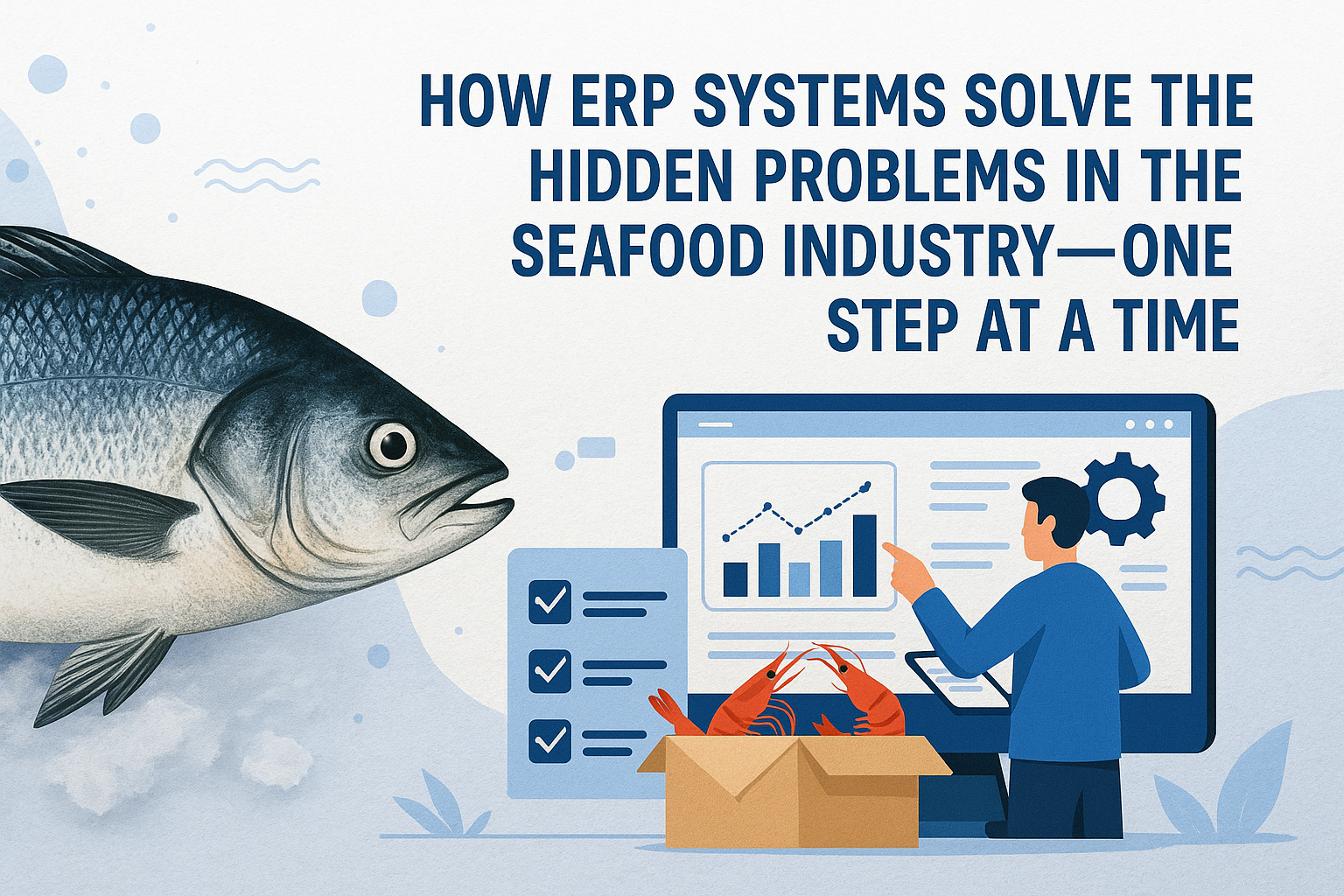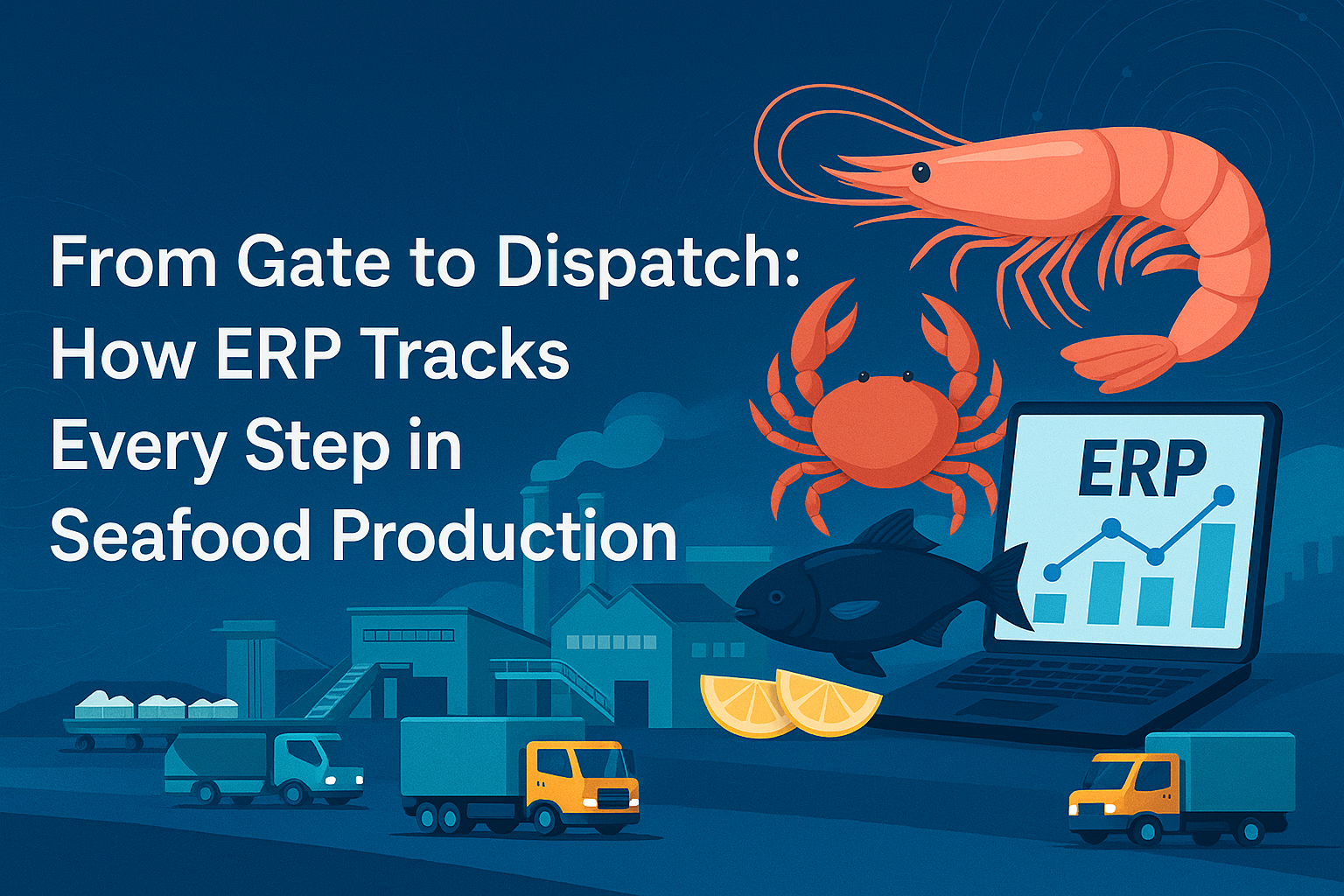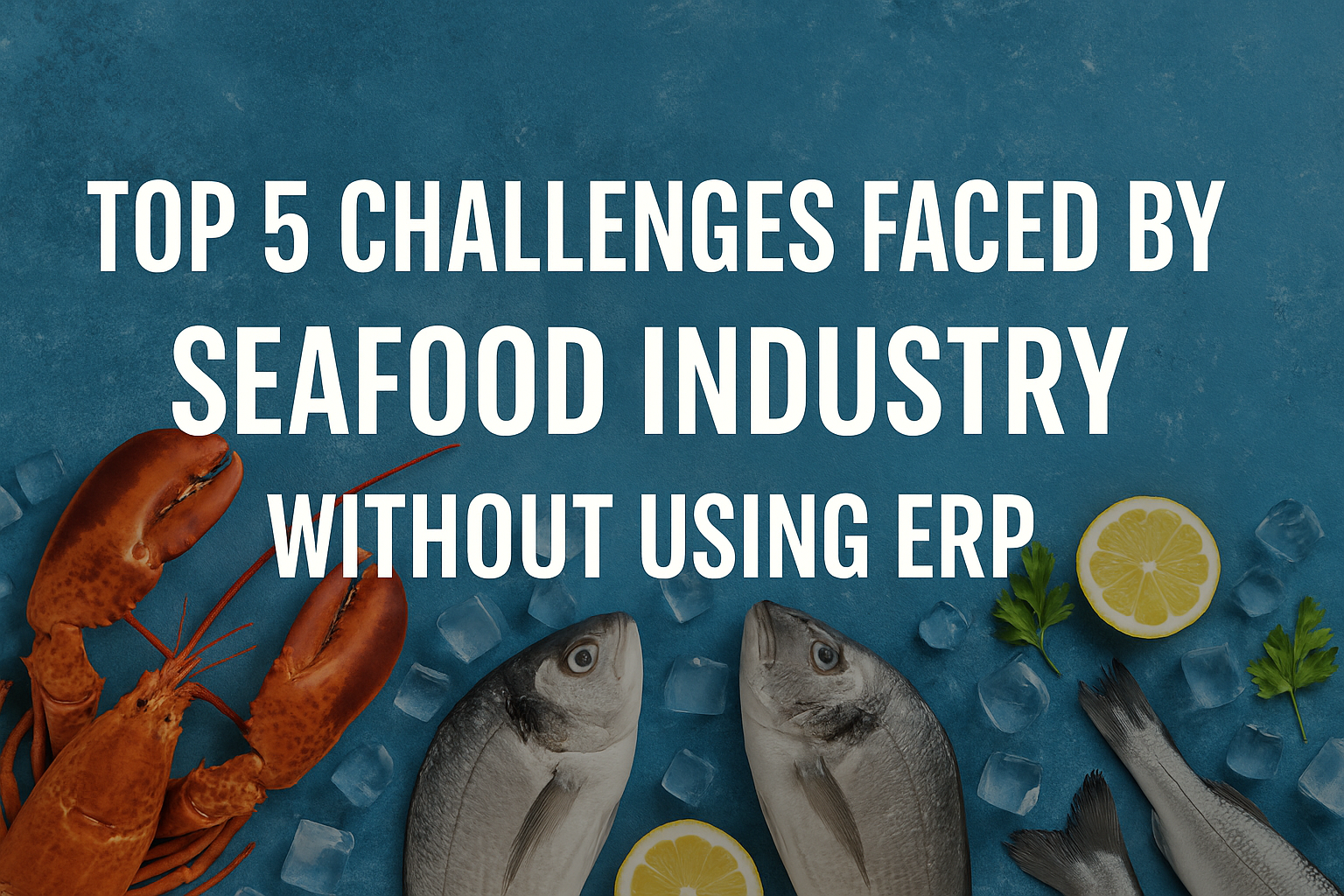
- By Umesh Dudule
- June 17, 2025
- No Comments
Running a seafood business isn’t easy, especially when you’re trying to juggle so many moving parts every single day. In our last blog, we highlighted some of the most overlooked struggles seafood companies face : chaotic inventory, unclear processes, high dependency on key staff, and slow decision-making. These aren’t just minor hiccups. They create a ripple effect that can hurt growth, profits, and customer trust.
Now, let’s talk about how to fix it.
The answer isn’t more people, more paper, or another spreadsheet. It’s about bringing clarity, structure, and control to your operation. That’s where the ERP system comes in. This system was built specifically to tackle the exact issues seafood businesses deal with or without complicating your workflow or removing the human touch.
1. Know What’s in Cold Storage Without Guessing
In many seafood operations, cold storage is handled by a few trusted team members who manage it from memory. While this approach works for a while, it becomes risky when someone is unavailable or makes a mistake. When frozen stock sits for months, accuracy is crucial. A clear and updated record that tracks batches, quality, and supplier details removes guesswork. It supports the business for visibility that doesn’t depend on memory alone.
2. Track Production as It Happens
Seafood processing is fast-paced. Missing even a single step due to a miscommunication or misplaced note can throw off an entire batch. Instead of totally relying on scattered updates, a live view of the production process helps teams stay in sync. From raw intake to finished packaging, everyone knows what’s happening and what needs attention next.
3. Export Documents Without the Paper Chase
Anyone who handles seafood exports knows that documentation is a major task. A minor error can delay shipping or even cause rejections. With documents generated automatically based on actual production data, this stress is removed. Shipping information, packing lists, and certificates are accurate and ready on time. It saves both time and reputation.
4. Everyone on the Same Page Literally
Many businesses operate in dependence on each other. Sales teams, production staff, and finance departments often work separately without real-time updates, and they do not work in sync. This leads to confusion, delays, and missed opportunities. When everyone is using the same advanced ERP system, communication becomes smoother and faster. Teams can act faster, avoid mistakes, and support each other better.
5. Depend Less on People, More on Process
Your team is valuable, but systems that rely solely on individuals become vulnerable. If one person is unavailable or makes an error, operations suffer. A process-driven approach creates backup and support. It doesn’t replace your people, but it gives them a smarter way to work and builds accountability across the board.
One System for Everything
Tools like Unify ERP solve the problems that mentioned above .It’s a practical solution for real-world seafood operations. Whether you’re handling local orders or exporting containers overseas. It keeps your entire workflow from storage to shipment smooth and efficient.
Fixing long-standing problems doesn’t require a massive overhaul. You don’t have to change how you work, just what you work with. Unify ERP fits into your existing setup, supports your team, and helps you take control without the daily firefighting.
Unify ERP is the most trusted software that provides security to your business.











